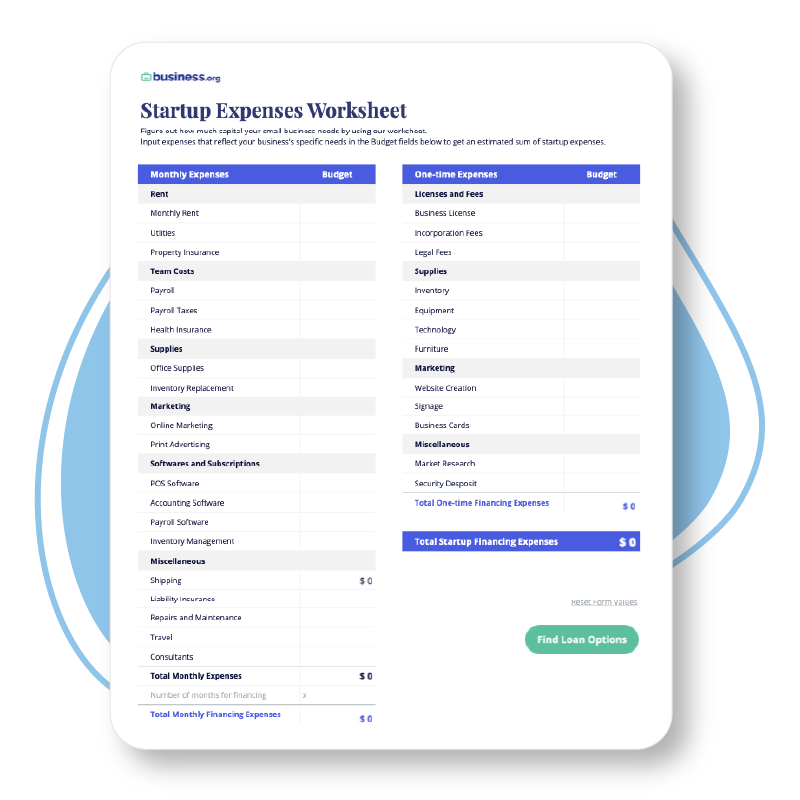💸 See if your business qualifies for a tax credit worth up to $26k per employee. 📞 Call Now: 855-979-9597
Experts Agree: Establishing Your Business as an LLC Is a Smart Move
We are committed to sharing unbiased reviews. Some of the links on our site are from our partners who compensate us. Read our editorial guidelines and advertising disclosure.
Syndicated from The Penny Hoarder
If you’ve ever considered starting your own business, then the thought has probably crossed your mind: What’s an LLC, and do I need one?
LLC, which stands for limited liability company, is a great option for small business owners looking for a way to get legally established.
Not only does this business structure make your company sound more official, but it also comes with certain legal benefits (like liability protection) as well as tax benefits for business owners.
We talked with seven experts — from lawyers to financial coaches — to help us understand the ins and outs of an LLC. Their (free!) advice will help you decide if an LLC is right for you.
What does LLC mean?
A limited liability company is a way of organizing your business that also comes with a few extra perks. Tony Grenier, CEO of Instrumental Global, an online music instruction site, breaks it down for us.
“A limited liability company (LLC) combines the best of a sole proprietorship, C Corporations, and partnerships,” Grenier said. “It basically offers flexibility in management, division of profits and losses, as well as taxation benefits.”
Unlike other business structures, limited liability companies are also relatively easy to get started, especially for solo business owners
“An LLC is a type of business in which only one member or employee is required, and that individual can participate in the business's daily operations,” said financial coach Annette Harris of Harris Financial Coaching.
Another unique aspect of LLCs is that the applicant doesn’t necessarily need a lawyer to start one. Depending on the state where you live, you may be able to register your LLC online. Once you get your business entity started, you also won’t have quite as many restrictions on how you operate your company as you would with a corporation.
“With corporations, it’s easy to drown in mandatory red tape, meetings, and admin,” said Adam Garcia, founder of The Stock Dork, an education investment site. “LLCs have less of that and as mentioned before are easier to set up and run.”
By signing up I agree to the Terms of Use and Privacy Policy.
What can an LLC do for my business?
One of the main reasons to get an LLC is that it provides quite a bit of protection for you as a business owner.
“An LLC allows business owners to limit their personal asset liability exposure for the financial obligations of the business,” said business attorney Kimberly M. Hanlon of Lucere Legal.
Since all businesses assume some level of legal risk, LLCs are one way to protect your net worth from being dragged into any type of legal battle as a result of your business. But LLCs aren’t just for protection, they also offer great tax benefits for business entities as well.
“Taxwise, LLCs are attractive as there isn’t any double tax at play,” said Garcia, of The Stock Dork. “This is different from corporations, where you get corporate taxes as well as owners being taxed on their dividends.”
As a result of the 2017 Tax Cuts and Jobs Act, LLC owners are also entitled to a tax deduction called the Qualified Business Income (QBI) deduction (which isn’t set to expire until 2025).
5 tips to form an LLC for your business
If you’re serious about forming an LLC, there are a few things you’ll want to keep in mind. Here are some high-level tips for successfully registering and owning a limited liability company.
1. Only use a lawyer if you really need one
Working with a law firm can be incredibly expensive, and while there are cases where you may want a lawyer, you don’t need one to form your LLC.
There are instructions online on reputable law blogs like Nolo or on the department of corporations website for your state,” said Mark Chen, founder and CEO of BillSmart.
You may need legal assistance if your state requires you to have an operating agreement (which outlines the agreement between LLC members), if you’re applying for a copyright or trademark, or if you’re applying for certain state or federal business certifications.
2. Keep your finances organized
Starting a new business venture is a lot of work, and it can be all too easy to get lazy when it comes to how you organize and record your finances. But this is definitely one aspect of your business you won’t want to cut corners on, as explained by financial planner Logan Murray of Pocket Project.
“Ideally, once an LLC is created, it’s advisable to keep income and expenses flowing only through that entity by setting up LLC bank accounts, getting debit or credit cards in the name of the LLC, etc,” Murray said. “This is helpful for legal purposes and also for tax purposes, as it keeps personal and business expenses separate, which makes your life a lot easier come tax time.”
Compare the top small business banks
Data effective 4/20/23. At publishing time, rates, fees, and requirements are current but are subject to change. Offers may not be available in all areas.
3. Register at the right time
Creating an LLC comes with a whole new set of responsibilities, and you’ll want to be sure you’re starting it at the right time — and not before.
“Choosing a business structure will be one of the first major decisions you make as a business owner, so give yourself the grace to move forward when it's right for you and no sooner,” said Terra Gross, founder of Attuned Legal LLC, which specializes in providing services to micro businesses. “Look closely at startup timing in light of how expensive it is to register and maintain an LLC wherever you plan to set it up, as well as whether you're personally ready to spend hours keeping up with, or outsourcing, the bookkeeping.
Even though there are perks, Gross said, you should stay on top of reporting and tax requirements. If you're in a regulated profession, you should also double-check whether there are restrictions on adopting an LLC as your business structure.
4. Be prepared for annual costs
In addition to the time investment of registering and maintaining your LLC, you’ll also want to be prepared for the monetary expense of getting your LLC up and running, and renewing its annual registration.
“LLC costs depend on the state,” said business attorney Hanlon. “There are registered agent fees and the annual fee that you’ll need to pay to the chamber of commerce in your state. Registered agent fees are about $50 a year. State LLCs range from $100 to $700.”
Another thing to keep in mind is that you may end up paying two different state fees if your LLC is registered in one state, but you live in another. Before you begin the process of forming an LLC, be sure to calculate exactly how much it will cost you and start saving up. That way, you won’t encounter any surprises down the road.
5. Start simple
One of the best pieces of advice we’ve heard about creating an LLC is to keep things simple, and if you’re not sure whether to form an LLC or a C corporation, consider starting with an LLC.
“Review the different types of legal structures: sole proprietorship, LLC, corporation and S corp and see what structure works for your needs,” Chen, of BillSmart, said. “Keep in mind that it's easier to go from an LLC to a corporation than a corporation to an LLC. Start simple, and then go deeper if you need to.”
As always, think about the money
Starting any new business venture is a big deal, and forming an LLC is no exception. Before you get started, take some time to outline your company goals and decide if this type of business entity is the best model for your company.
You should also consider setting aside some cash for registration and other startup costs. If you have business partners, be sure to get them involved in the conversation, and consider drafting an operational agreement to designate various responsibilities. The more planning you can do in advance, the better your transition into a limited liability company will be.
Contributor Larissa Runkle specializes in finance, real estate and lifestyle topics. She is a regular contributor to The Penny Hoarder.
FAQ about LLCs
An LLC, or limited liability company, is a type of business structure that gives business owners certain legal protections (like limited liability) and tax benefits. It’s also a relatively simple business entity to start, and only requires one owner.
An LLC is a legal entity used by small business owners who want a more formal business structure than a sole proprietorship or partnership. It offers certain legal protections and tax benefits as well.
LLCs can be a great option for small business owners, depending on the goals and needs of their company. For larger companies, or those wishing to raise venture capital funding, forming a C corporation might make more sense.







